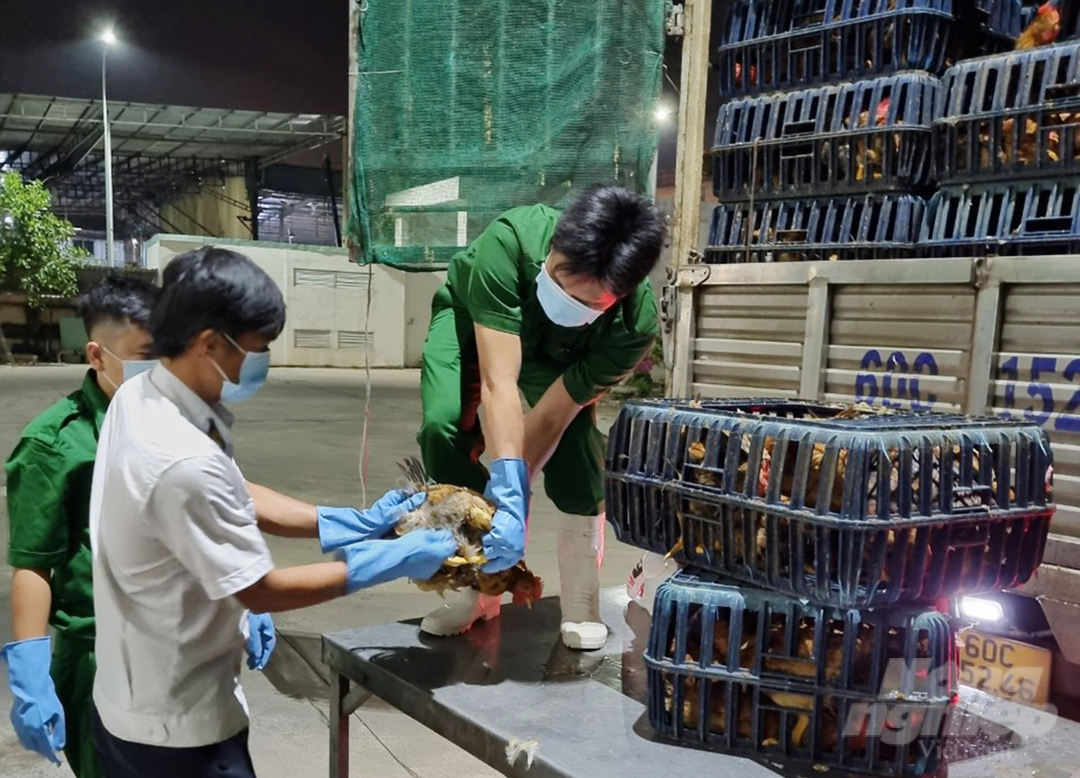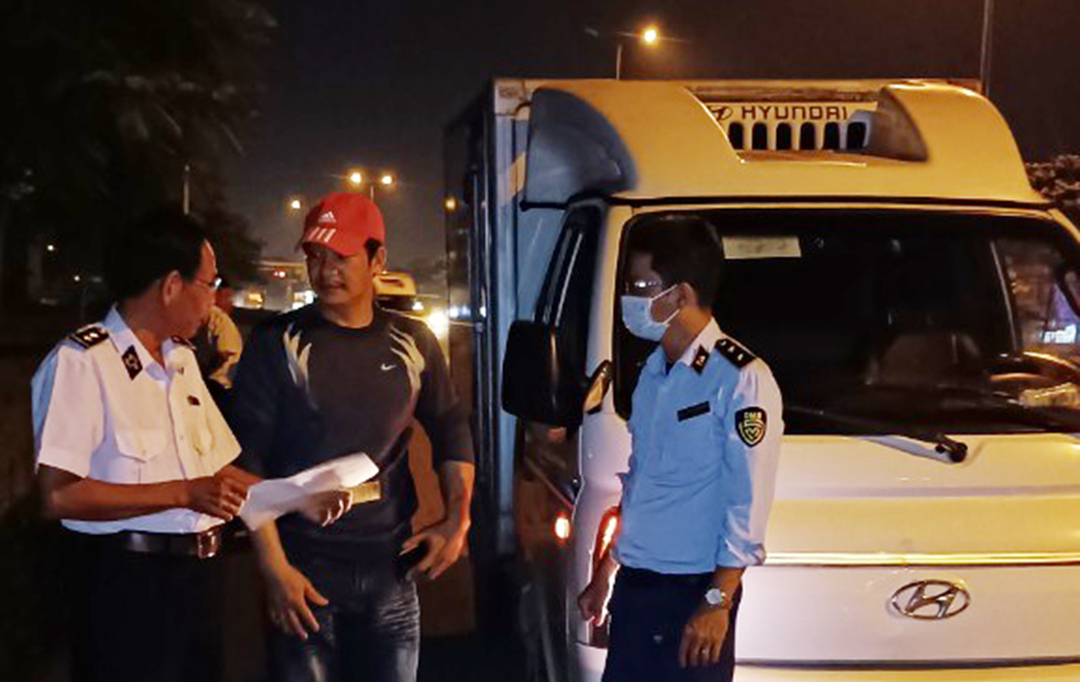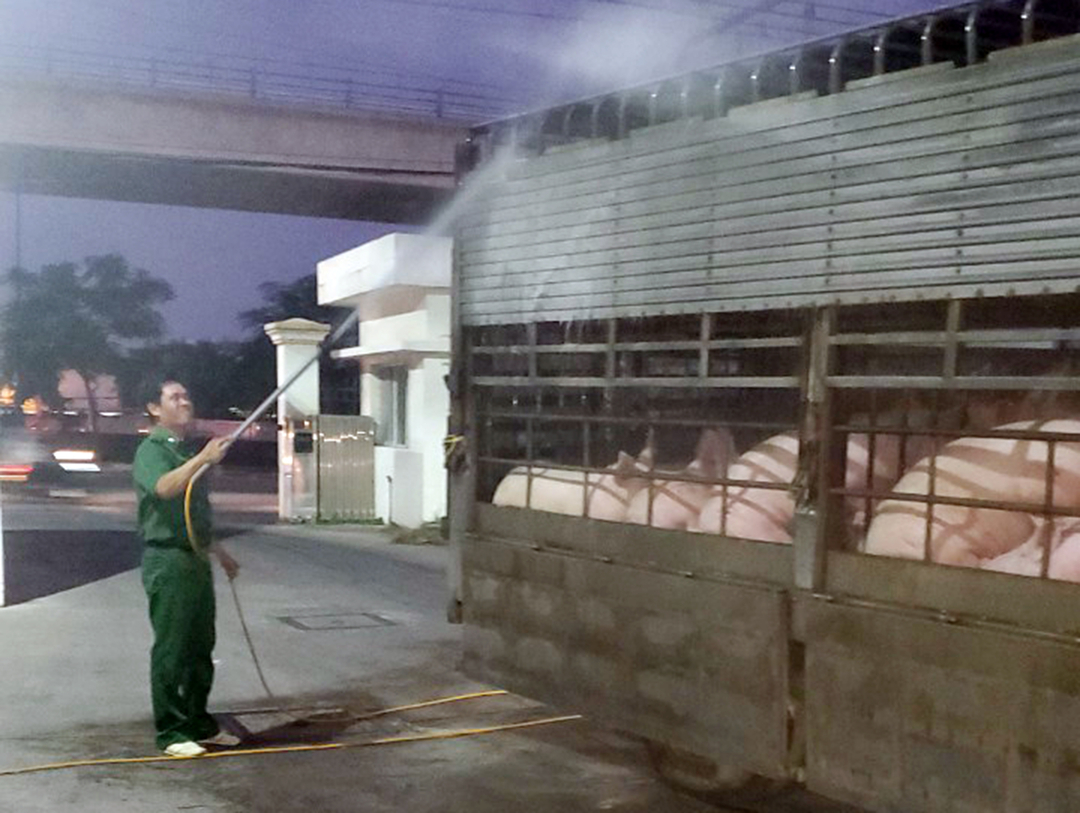
Officials at Animal Quarantine Center Thu Duc, city. Ho Chi Minh City took samples to test poultry for A/H5N1 influenza before transporting them to the city.
Block at the gate
Although the city. Ho Chi Minh City does not border Cambodia, but is a place with a large consumption of livestock and poultry products, so management of disease safety as well as food safety is of particular interest to departments and authorities.
In an urgent response to disease prevention related to Cambodia’s recorded cases of A/H5N1 influenza, one person died in Prey Veng Province – the border area between Vietnam and Cambodia and Ho Chi Minh City. Ho Chi Minh City has taken measures to prevent disease as well as disease at the gate.
We were present at the Thu Duc animal quarantine station (Thu Duc City, Ho Chi Minh City) at the precise moment when the officials here were carrying out the work of taking samples from the poultry to be transported to the city for consumption.
Mr Pham Ngoc Chi, head of the Thu Duc animal quarantine station, said that the Ministry of Agriculture and Rural Development of Ho Chi Minh City is under the direction of the Ministry of Agriculture and Rural Development. Ho Chi Minh City, Department of Animal Husbandry and Veterinary Medicine of Ho Chi Minh City. In Ho Chi Minh City, the unit has strengthened coordination in inspecting and inspecting the origin of livestock, poultry and livestock and poultry products from the provinces to the city. HCM slaughters and consumes.
For poultry and poultry products, the quarantine force of the Thu Duc animal quarantine station has stepped up sampling of the bird flu virus circulation during transport to the city for early warning.
According to Mr. Chi, most of the animal sources are controlled from the source and are mainly brought to the city from sources in the southeastern region. “Every day (24 hours – PV) in Thu Duc animal quarantine station, there are about 10 poultry transports, which is equivalent to 18,000-20,000 poultry to the city for slaughter and consumption. Pigs transport (equivalent to 2,000 head),” said Mr. Chi.
Mr. Chi added that the Thu Duc animal quarantine station also recently handled a case of transporting about 500-700 kg of slaughtered pork, but when transporting to the city, the quarantine was not carried out in the city, prompted by the quarantine squad and traffic police to disinfect yourself before entering the city, although there is a certificate of slaughter control from the root.
Thu Duc Animal Quarantine Station Pham Ngoc Chi has 7 officers who have to control 24/24 hours from Monday to Sunday with no days off, they have to organize crews on duty. “Each shift has two people on duty, alternately for 7 days, the troop carries out the task, strengthens the strict clinical examination, and coordinates with the relevant units to patrol and control illegal activities in the area of National Road 1A,” Mr. Chi said.

Control of vehicles transporting livestock and poultry on National Highway 1A.
disinfection month
According to Mr. Nguyen Huu Thiet, deputy director of Ho Chi Minh City’s Department of Animal Husbandry and Veterinary Medicine. In Ho Chi Minh City, 21 districts and Thu Duc City implemented synchronous and continuous top-down disease prevention in farm animals.
In particular, the prevention of bird flu was also managed by the city officials and the Ministry of Agriculture and Rural Development. In addition to the consolidation of the city and county avian influenza prevention and control steering committees, the city-level multi-sectoral inspection team (including market administration, animal husbandry and veterinary sub-department) was also established. police) and district level to control operations, slaughter of poultry, permits to transport animals, animal products, etc.
From a professional point of view, Mr. Thiet said, the functional forces will strengthen the control of poultry slaughter in legitimate poultry slaughterhouses (control of inputs, origin documents, increased inspection of poultry products), sampling for active surveillance and disease surveillance). At the same time, random samples were taken from the breeding, slaughtering and transport companies in the city.

Disinfect vehicles transporting livestock and poultry before heading into town for slaughter.
“There are two types of sampling, one is taking a sample to check the protective value after vaccination; the other is an active surveillance test – taking a sample at the market to determine if there is disease in the animal’s body. In this case “There will be timely warnings, coordinated treatment and destruction of infected poultry, suspected disease, positive avian influenza virus according to the regulations,” Mr Thiet said.
Mr Thiet added that the veterinary sector also plans to vaccinate every 2 years to prevent disease with livestock vaccines, the type of vaccine set by the Ministry of Agriculture and Rural Development.
In addition, in March TP. Ho Chi Minh City also carried out disinfection and sterilization for a month according to the implementation plan of the Ministry of Agriculture and Rural Development. Simultaneous use on subjects from breeding, slaughter and quarantine facilities at traffic checkpoints bordering the provinces requires vehicles to be disinfected before entering the city. “This is the month of changing seasons, before the hot season, livestock resilience has changed, so it is necessary to strengthen disease prevention to disinfect pathogens,” said Mr. Thiet.
In particular, the Animal Health and Livestock Subdivision has also stepped up propaganda for the people and advised the county people’s committees to increase the frequency of interdisciplinary inspection teams for disease control. Guide poultry farmers to strengthen the strict application of biosecurity measures in animal production and ensure hygiene and disease prevention; Clean and disinfect breeding areas regularly to kill pathogens; supervise poultry flocks fully vaccinated against avian influenza; continue to maintain a safe area for bird flu in the city.

